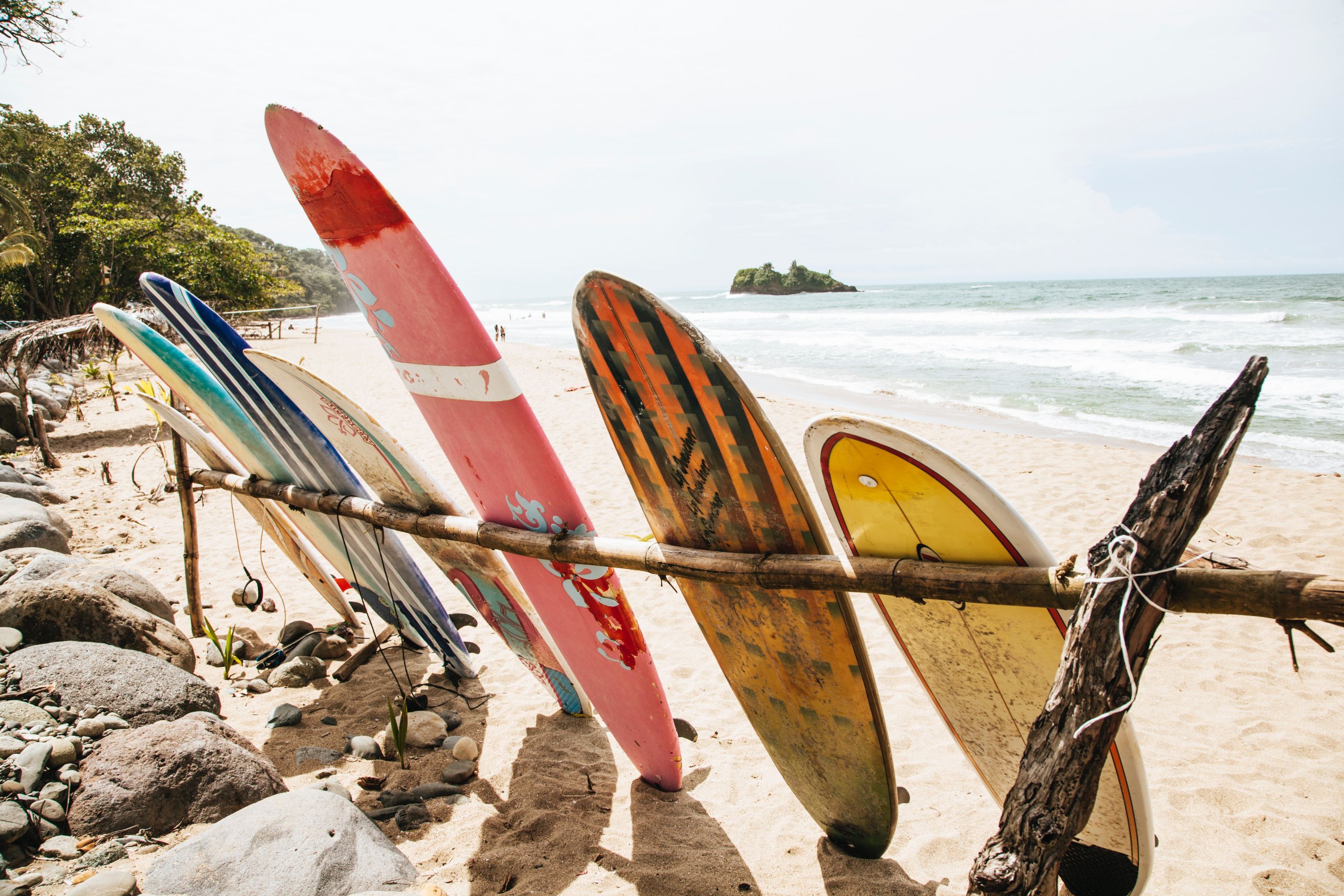
Surfing is one of the good things in life. There are few feelings quite like being out on the water as the waves roll in, set after set, lying on your board with the whole of the ocean out in front of you. Even if you miss half of the waves and the next quarter land squarely on your head, the feeling when you eventually catch one, stand up and get surfing is simply incomparable. Tough work? Oh yes. Worth it? Absolutely.
Of course, if you’re a beginner surfer, it can be tough to even know what to expect. If you’re a real newbie to surfing, it's basically essential that you get a lesson on your first outing to make some sense of it. A good coach for an hour or two will be able to show you the proper surfing positions, keep you safe in the water and teach you the essential techniques that the rest of your surfing life will be based on.
Until then, we thought we could give you a few fun insights into what to expect when you start surfing. Here’s some surfing tips for beginners, so you can get stoked to get out and start catching waves.
1. A little surfing etiquette goes a long way
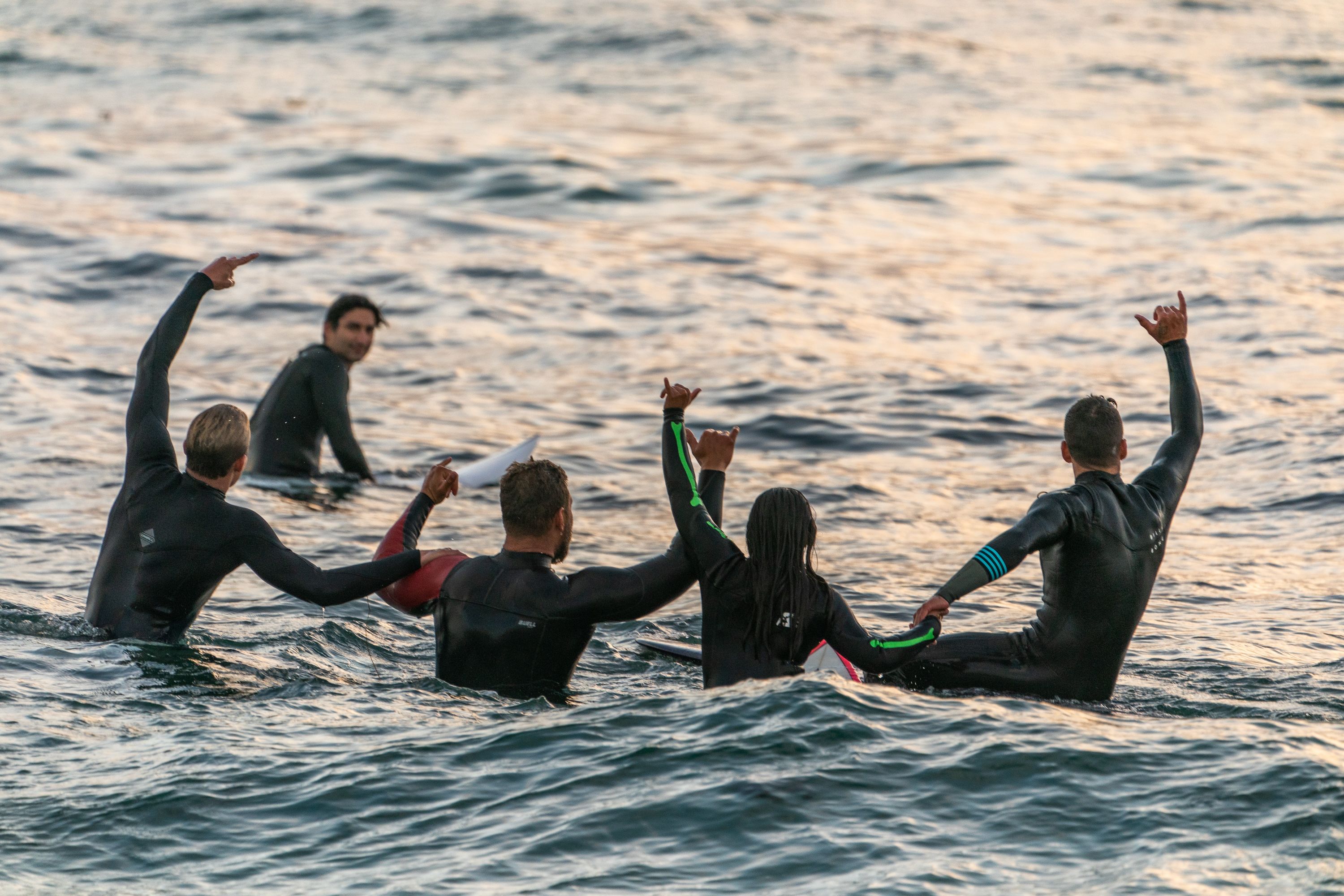
Much like anything in life, there’s a certain etiquette to the surfing line up – the ‘line up’ being the name used to describe all those folk with boards and wetsuits that you’re out in the water with trying to catch your waves. If you don’t want to get on the nerves of other – usually more experienced – surfers, then there’s a few things that are good to know before you head out.
Surfing rules dictate that you should never let go of your board. It can be a danger to yourself and others if it’s out there by itself. Of course, you should be attached to it by a leash, which will sit on one of your legs, so this shouldn’t be a problem.
“If you’ve got yourself an instructor, they’ll keep you right in the water”
When you’re paddling out, just be aware that there may be surfers surfing the wave that you’re about to go through. Ideally go around the break, not through it. But basically, just don’t get in the way of someone surfing on a wave. That’ll end badly for you.
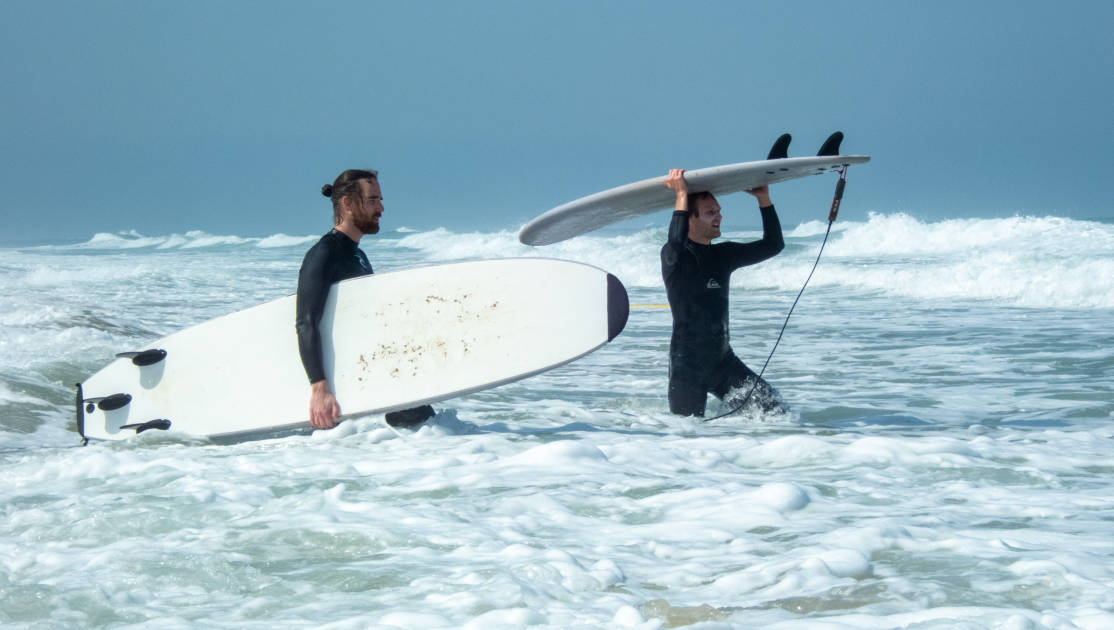
Right of way also plays a part in surfing etiquette. The person closest to the break gets the right of way on a wave, though again, as a beginner this shouldn’t come into play too often. Just make sure you don’t cut in line or steal anyone’s waves the first time you’re out by yourself after getting a couple of lessons under your belt!
All that said, don’t be scared. People tend to be friendly and surfing at beginner level doesn’t tend to be a clique-y sport. These are easy to obey and all quite obvious when you know they exist. If you’ve got yourself an instructor, they’ll keep you right in the water.
2. Don’t be disheartened if it takes you a while to catch your first wave
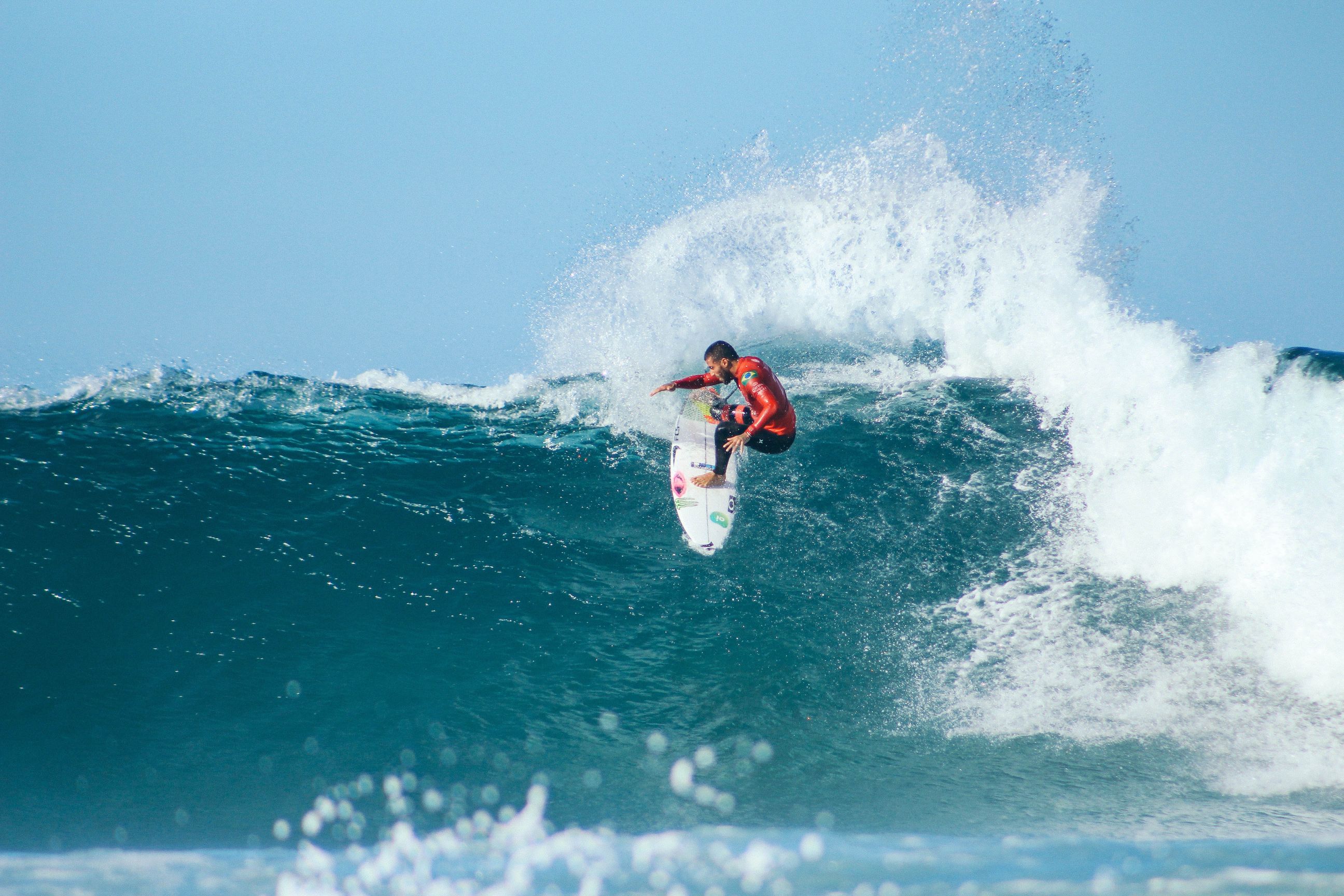
Surfing is one of those sports that is deceptively hard. This is mostly because when you think of surfing, you probably think of either a) Kelly Slater catching a wave and riding through a barrel or b) Keanu Reeves in Point Break (the original being much better, obviously) or c) something like the photo above. Look at him. He looks good. Unreasonably good, really. Professionals and movies and media online make surfing look a lot easier than it is, because the people you tend to see tend to be absolutely unreal at it. The proper elite.
Being a beginner surfer is much trickier. First you have to learn right the position to be in on your board to catch a wave. Then you have to try and catch the thing. And even when you’ve done that, it’s not all over. You’ve got to try and stand up on the board and keep your balance. If you get into the habit of catching waves and standing up, there’s then the progression of turning, using a shorter board (you’re likely to start on a large, foam board) and so on. Effectively, the progression never ends. This is something to keep in mind on day one, when you’re likely to struggle to catch waves right away. Don’t let it get to you!
Just the fact that you’re out in the ocean, in a wetsuit, trying out surfing is a huge step. Hopefully you’ll catch some waves and get to stand up at least once on your first try. But even if you don’t, you’ll have learned invaluable insight into surfing that’ll serve you well next time. Eventually, you’ll be catching waves every time. Then you’ll be standing up more regularly. Each little intricacy of surfing is hard… until it isn’t. Practise makes perfect. Keep at it, and just remember, every day is a school day in surfing, no matter what your level!
3. Wetsuits are sacred
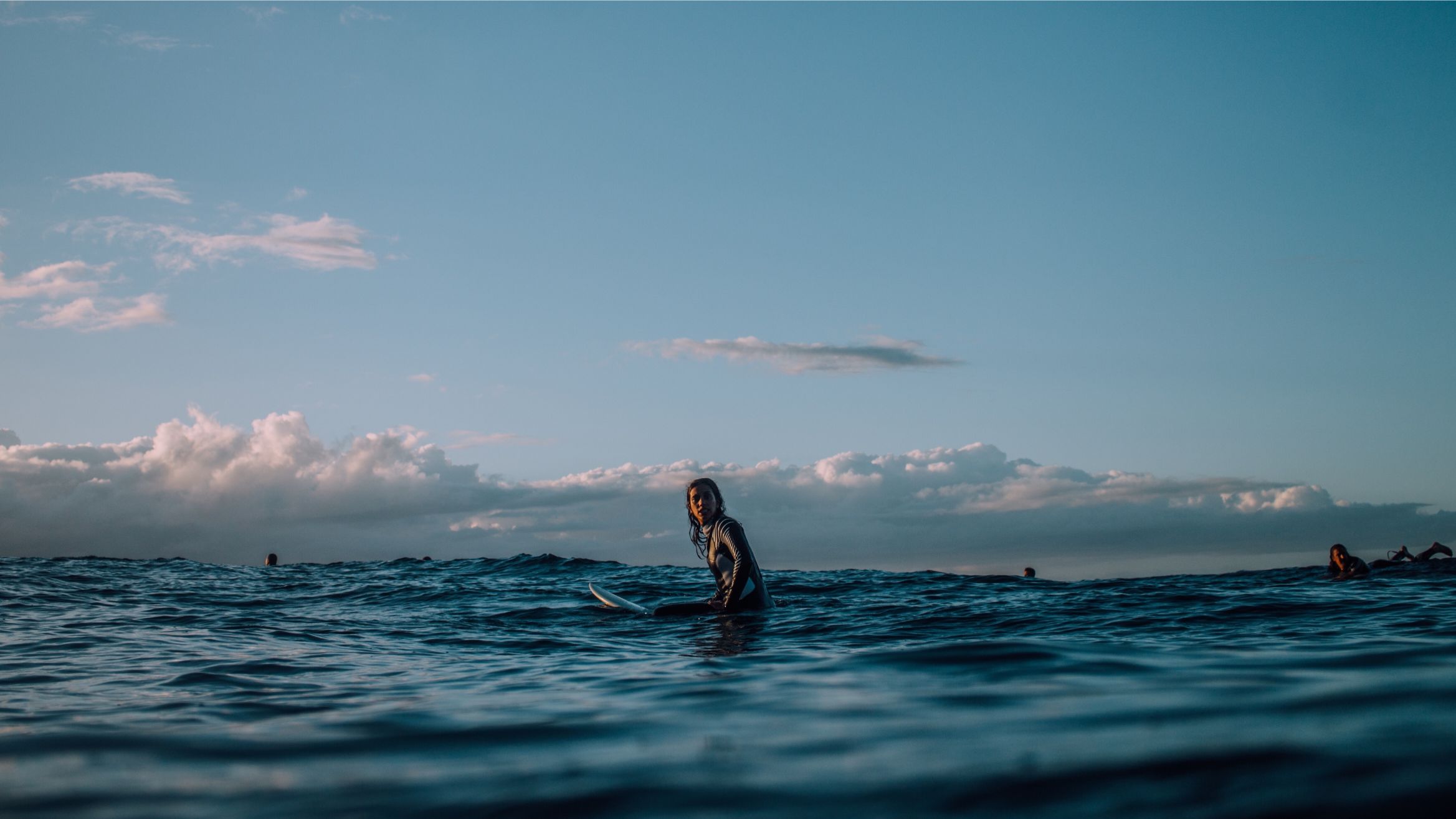
You might hate wetsuits the first time you stick one on. You’ll almost definitely put it on the wrong way the first time, too (the zip usually goes at the back). Maybe the image you had of surfing was of you in a bikini or board shorts, barrelling waves in Hawaii. But if your instructor suggests a wetsuit, grab it with both hands. If you’re in colder climates, they’re simply invaluable. Surfing in the UK is made possible thanks to wetsuits. The wild coastlines of Scotland and Ireland actually have some of the most famous breaks in Europe, while the surfing scene is obviously much more common and well documented in the likes of Cornwall and southern England in general.
Not only will wetsuits or drysuits keep you warm though and allow surfing no matter how cold the water, they also offer you a lot of protection. If you’re surfing in Morocco for example, you might encounter the odd small jellyfish. They can’t sting you through the wetsuit. All safe!
4. You’ll leave elated despite the exhaustion

You might not have been surfing before, but you’ve probably been to the gym at least once in your life, right? We’re more about the outdoors, but it’s a relatable example. You know that feeling when you’ve done a gym session, then you leave, and even though you’ve worked super hard and in theory you should be exhausted, you feel exuberant? It’s the exercise. All those endorphins. And the feeling of strength that comes with all of that.
When you go surfing, you’re going to find it hard at times. Paddling is tiring. Paddling late in a surfing session is extremely tiring. Getting hit by a wave on the head will take your breath away. Getting hit by two in a row might leave you laughing your head off manically in the ocean. It’s exhausting, the whole thing. But you’re out in the water, with a surfboard, learning and catching waves. It’s exciting. And even if you’re tired afterwards, having worked muscles you never even knew existed, we bet you’ll feel refreshed and be buzzing to do it all again.
5. You will be forever dripping

After surfing, you will clamber awkwardly out of your wetsuit with all the grace of a dog falling over trying to catch its own tail. Then you’ll probably shower, if possible, dry yourself off and put on a fresh, dry pair of clothes. Lovely. All done, right? Ha! Nope. Absolutely not.

For the next little while… your nose? Your ears? They will be dripping, randomly, unexpectedly, for the next few hours at the very least. Probably longer. You have been in the ocean. Probably for a couple of hours. And now the ocean is in you (metaphorically in your heart, hopefully, but literally in your ear sockets and nostrils, almost definitely). So, yeah, not sure what you’re meant to do with that information but just to let you know – it’s definitely a thing.
6. You will begin to find waves everywhere
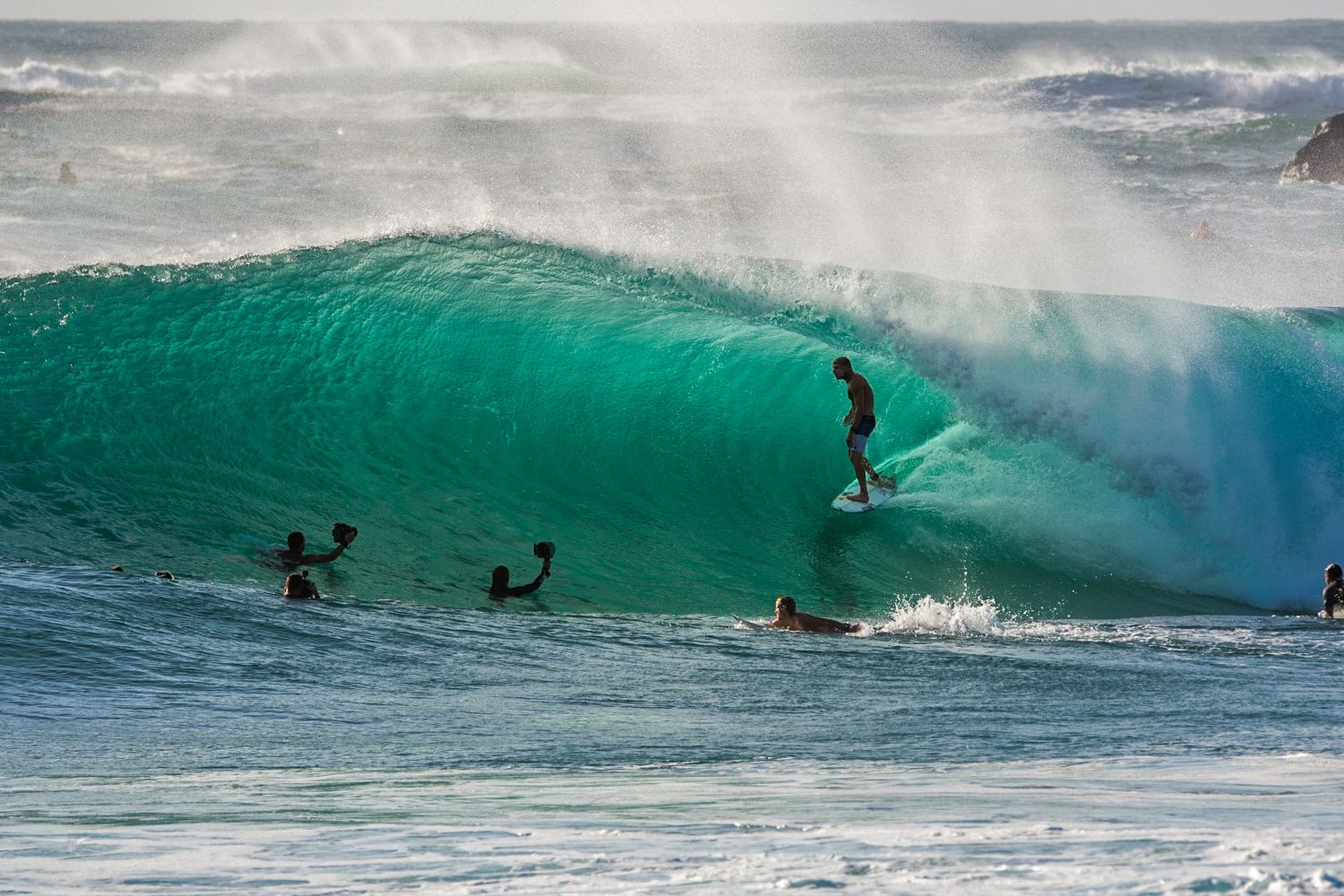
The beauty of surfing is that, if you love nature, and you love spending time in the outdoors and exploring different environments, then you’re almost guaranteed to enjoy surfing – no matter how good or bad you actually are at the activity of surfing itself.
Just being out there on the beach, board in hand, makes you feel good. Catching a wave makes you feel good. Getting hit by a wave makes you, well, it puts you under water for a couple of seconds, and then when you come back up, it makes you feel good. It makes you laugh. So after one go, expect to want another. After another go, expect to get even more hooked as you see yourself quickly progressing through the beginner surfing levels. And as that happens, expect to start seeing waves everywhere you go.
You’ll look at the ocean, see waves and long to be there. Or you’ll look at a coffee or a puddle on a windy day, see ripples and waves running through it and think “if I was half a centimetre tall, I could totally surf that”. You’ll become bored by pictures of beautiful beaches because the ocean is calm beyond them. You’ll start manically checking the waves at your local surf spot on Magic Seaweed. It’s an addiction. Follow it and it might just become a lifestyle.
Inspired to try surfing? Check out our range of surfing holidays, from beginner surf courses to catching Moroccan waves.

